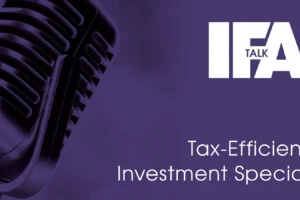Leading global companies continue to fail to recognise the importance of addressing workplace mental health issues finds a report issued today, World Mental Health Day. Only five of 119 companies assessed make the top two performance tiers of the CCLA Corporate Mental Health Benchmark Global 100+ by demonstrating a strategic approach to managing this crucial issue. Just 12 companies have improved their performance sufficiently since last year’s assessment to move to a higher tier.
“While some employers are improving the support they give to their employees’ mental health, too many are ignoring a critical issue for their workforce, to the detriment of their people’s wellbeing – and of the bottom line.” Amy Browne, Director of Stewardship, CCLA.
In its third year, the award-winning benchmark led by CCLA Investment Management, ranks 119 leading companies worldwide (which collectively employ 21 million workers), on how they manage and report on workplace mental health. It uses publicly available information to evaluate companies against 27 criteria covering: management commitment and policy; governance and management; leadership and innovation; and performance reporting and impact.
Only one company, HSBC Holdings, is ranked in the top tier, followed by Roche Holding, Shell, Toronto-Dominion Bank and TotalEnergies in tier 2. Despite their considerable resources – and large workforces – six of the Magnificent 7 tech giants rank in the lowest performance tier. Alphabet, Apple, Meta Platforms, Microsoft, Nvidia and Tesla all scored between 0 and 20% in the assessment. Amazon ranks in tier 4.
Amy BROWNE, co-author of the benchmark report, said:
“It is disappointing that we haven’t seen more progress by companies within the benchmark on improving their performance – not least because there is a clear economic case for doing so. Investments in mental health interventions at work yield an average return to employers of £4.70 for every £1 spent.[2]
“Despite the broad lack of progress, we are making headway. A small handful of employers – those in tiers 1 and 2 – have demonstrated a very strong approach to mental health management and disclosure and should be celebrated. Those that have put time and effort into improving their ranking should also be commended.
“On the other hand, people considering a tier 5 company as a potential employer should think carefully about whether those businesses will be willing to provide a working environment where they will thrive. Look at the ‘Magnificent Seven’; they may be great businesses, but are they good employers? The findings suggest not.
“We call on CEOs to demonstrate a clear leadership commitment to employee mental health, to implement robust policies, set targets, work to raise awareness and equip managers with the necessary skills and training to support employee mental health.”
The benchmark is backed by a global investor coalition on workplace mental health of 55 investors with a combined $9.8 trillion in assets under management (as of August 2024). It has grown since its launch in 2022 from 29 founding signatories, demonstrating an increasing awareness by investors of mental health as a material business concern.
Globally, 15% of working age adults live with a mental disorder.[3] It is estimated that the most prevalent mental health conditions cost $1 trillion to the global economy every year – mostly from lost productivity.[4]
Although almost all companies in the benchmark are taking some steps to support their employees’ mental health, the average score was just 28% this year, leaving considerable room for improvement. Ten new companies were added to the benchmark in 2024 and achieved an overall average score of 22%. However, there has been some progress among the 99 companies that have appeared in the benchmark over all of the past three years: their average score has risen from 24% in 2022 to 29% in 2024.
Fifty-two investors, with $8.7 trillion in assets under management, supported efforts to engage with benchmark constituents to improve their performance on employee mental health issues, by co-signing letters issued to companies in October 2023. Nineteen of these investors engaged directly with companies throughout the year on mental health, either in collaboration with or independently of CCLA.
Positive findings
- Almost all of the Global 100+ companies provide some degree of mental health support services to employees. Ninety-eight percent report providing at least one mental health service offering, such as access to clinical counselling and therapy sessions, or subscriptions to digital mental health apps.
- Most companies in the Global 100+ are raising awareness of mental health among their workforces. Just over three quarters (78%) disclose details of awareness-raising initiatives, such as internal communications campaigns and whole-workforce training.
- Overall progress: 12 companies improved performance on mental health this year sufficiently to increase their tier ranking. They are Alibaba Group Holding, Goldman Sachs Group, Honeywell International, L’Oréal, Novo Nordisk, Reliance Industries, Roche Holding, Shell, Taiwan Semiconductor Manufacturing Co, Tencent Holdings, T-Mobile US and TotalEnergies.
- Some companies have delivered significant improvements. Since the first benchmark in 2022, nine companies have improved their scores by 20 percentage points or more. Among these, TotalEnergies, Roche Holding and Toronto-Dominion Bank have improved their scores by over 40 percentage points.
Areas of concern
- Fewer than a quarter of the Global 100+ companies say they provide mental health training to line managers. Just 24% of the companies disclose the provision of such training to managers – only marginally higher than in 2023 (22%). Mental health training is a key intervention recommended in the 2022 WHO guidelines on mental health at work,[5] and managers are ideally placed to direct individuals to relevant support resources that might prevent progression to long-term sickness.
- Just 13% of companies in the Global 100+ publish a CEO statement on workplace mental health. As the highest-ranking officers charged with the management of an organisation, CEOs are uniquely placed to champion mental health.
- Global 100+ companies are broadly failing to link workplace culture – or good work – and mental health. Most businesses outline commitments on at least some elements of good work – such as diversity, equity and inclusion (DEI), fair pay and financial wellbeing, flexible working and career progression. However, there is widespread failure to acknowledge the impact of the resultant working culture on mental wellbeing. For example, although all of the assessed companies publish a DEI commitment, only 15% make the connection with mental health in the workplace.
Results highlights
- Of the six largest sectors in the benchmark, Healthcare is the strongest performing sector, scoring an overall average of 33%. Industrials scores worst at 21%.
- The top-performing criterion in the benchmark relates to the provision of mental health support to employees; 84% of companies evidenced multiple service offerings and therefore scored maximum points.
- The benchmark showed most deterioration in two criteria. First, only 21% of companies (compared to 27% in 2023) have assigned responsibility for day-to-day operational management for workplace mental health. Second, only 9% of companies (compared to 15% in 2023) engage customers and/or suppliers in initiatives aimed at promoting positive mental health.
- Companies in EMEA (Europe, the Middle East and Africa) perform most strongly, with an overall average score of 42%. North American companies underperform, averaging a 25% overall score, with Asia Pacific companies performing worst, with an overall average score of 23%.
Andrew GIBBONS, Group Head of Wellbeing and Recognition, HSBC, said:
“HSBC is proud to achieve tier 1 status on CCLA’s Global Mental Health Benchmark for the third year running, underlining our commitment to mental health and a great colleague experience.
“Whilst we are delighted with this recognition, we know there is still work to do and we will use the CCLA recommendations to develop our approach further. We are committed to ensuring that mental health remains on the management agenda. It’s not just good for our employees, and their families, but it’s also good for business as it can lead to better outcomes for the customers and communities we support.”
Mia Hjorth, Vice President and Head of Novo Nordisk Health and Safety, said:
“We at Novo Nordisk are humbled and honoured to be recognised for our performance on improving our efforts on ensuring a working environment fostering mental well-being for our people. We also recognise we have plenty of work ahead to ensure that we have a resilient workplace environment and culture where people can safely perform, thrive and enhance total well-being and health on an ongoing basis. This recognition serves as a powerful motivator for our ongoing efforts to further improve and support health and well-being in our workplace and beyond.”
Shekhar SAXENA, Professor of the Practice of Global Mental Health at the Department of Global Health and Population at the Havard T. H. Chan School of Public Health, said:
“Are large global corporates doing enough for mental health of their staff? The clear answer is no. CCLA’s Global Mental Health Benchmark Report 2024 both illustrates where companies are falling short and provides numerous case studies of best practice. It offers extensive pointers as to how companies can make much-needed improvements.”
Remi FERNANDEZ, Head of Human Rights, Social & Governance Issues, Principles for Responsible Investment, said:
“The Corporate Mental Health Benchmark 2024 reemphasises the importance of workplace mental health. The report highlights a promising growth in formal commitments and policies linked to mental health. However, there is still more work needed on implementation. As a material issue for investors, the PRI encourages signatories to engage companies on how they are addressing workplace mental health.”
Peter HUGH SMITH, CCLA’s Chief Executive, said:
“We created this benchmark because we recognised the importance of mental health for companies, employees and their investors. Supporting employees’ mental health is not only the right thing to do, it also pays dividends in terms of corporate performance. It is therefore disappointing not to have seen greater improvement across the market, but it is also important to recognise where companies have stepped up. We will continue our work to engage on this issue, with the hope and expectation that we will see greater progress in future.”
The sister benchmark to the Global 100+, the UK 100, was released on 17 June 2024.
[1] Deloitte (2024), ‘Mental health and employers: the case for employers to invest in supporting working parents and a mentally healthy workplace’, online at www2.deloitte.com/content/dam/Deloitte/uk/Documents/consultancy/deloitte-uk-mental-health-report-2024-final.pdf (see page 7)
[2] Deloitte (2024), ‘Mental health and employers: the case for employers to invest in supporting working parents and a mentally healthy workplace’, online at www2.deloitte.com/content/dam/Deloitte/uk/Documents/consultancy/deloitte-uk-mental-health-report-2024-final.pdf (see page 7)
[3] World Health Organization (2024), ‘Mental Health, Brain Health and Substance Use’, online at https://www.who.int/teams/mental-health-and-substance-use/promotion-prevention/mental-health-in-the-workplace
[4] World Health Organization (2022), ‘WHO guidelines on mental health at work’, online at https://iris.who.int/bitstream/handle/10665/363177/9789240053052-eng.pdf?sequence=1 (see page 2)
[5] World Health Organization (2022), ‘WHO guidelines on mental health at work’, online at https://iris.who.int/bit















